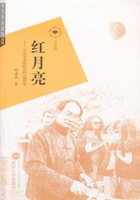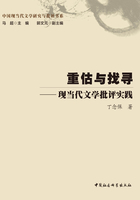The great majority of the members of every community, procure their subsistence by labor, and, according to this principle, the number of laborers in every community must finally depend on the amount of those things esteemed by them sufficient for their subsistence, which is atomally distributed among them.It has been supposed, however, that there is a constant oscillation above and below this limit, and that sometimes therefore the supply having to be divided among a greater number, the amount that each receives is less, sometimes, having to be divided among a smaller number, is greater, and thus that the wages of labor, though they always tend towards a fixed standard, never remain at it.Admitting that this continual vibration may take place, I conceive I may be permitted nevertheless to disregard it, and to assume that the remuneration awarded the laborer, is, in the same society, always a fixed quantity.As it is not intended to enter into any investigation of the principles determining the amount of the wages of labor in all societies, and at all times, nor to discuss the somewhat contradictory doctrines that have been maintained on this subject, the most simple assumption, and that, the errors arising from which may be supposed to balance each other, seems the best.
Even considering the subject however under the most simple conditions possible, there are still some difficulties attending it.The articles which the laborer uses, for food, clothing, etc., and which constitute his real wages, are continually varying.Thus, among the working classes in Great Britain, fabrics of cotton have, in a great measure, taken the place of those of linen, and wool for clothing; as coal has taken the place of wood for fuel.Seeing there is this change in what constitute the wages of labor, how then, it may be demanded, can wages at any two times be considered equal?
In answer to such a question, it may be observed in general that all articles supplying the wants of the laborer, and forming his real wages, are fitted for this purpose by some physical qualities they possess, producing certain effects on his bodily organs, and, through them, occasionally, on the perceptions and thoughts of his mind.One article, therefore, may be esteemed equal to another and different article, if the effects produced by both are equal.Thus a certain quantity of coal, may be considered equal to another of wood, if each gives out the same degree of heat.In many cases it is indeed very difficult to make this comparison with accuracy.
This however is not absolutely necessary for our purpose, it being sufficient to conceive, that, what are termed the wages of labor, in the same society, at different periods, are really equal quantities, whether we have, or have not, the means of measuring them, and ascertaining that they actually are so.This may evidently be assumed, if we suppose that the laborer is equally well nourished, clothed, lodged, and instructed, and has equal leisure, at the one period and at the other; whether he be fed, clothed, and lodged, in the same way or not.
As the vigor of mind and body, as well as the skill, of different individuals in the same society, are unequal, the rate of the wages of labor, even in the same society, is far from uniform.It is however difficult and in general reasons unnecessary, continually to refer to this variety; and as it has, in consequence, been usually neglected, we shall not farther advert to it.
According to the preceding assumptions, labor, in the same society, is to be considered as an invariable quantity, and a day's labor as the unit, serving as the base for calculations, concerning the formation and exhaustion of the capacity of instruments.It is to be observed, however, that when so employed, it finally refers, not to the mental and corporeal effort exerted throughout the day by the laborer, but to the wages received by him.The laborer is, usually, merely the agent of some other person, and that other person is, in reality, the one forming the instrument constructed, as the wages of the laborers employed by him are the causes of its being constructed.In cases too, where the laborer works for himself, he rates his daily labor equal to a certain amount of some of the things he is in the habit of consuming, and this amount may be considered, as what he really gives to the construction of the instrument, in the formation of which he employs himself.
The rates of wages vary, very much, in different societies.A Chinese laborer, for example, subsists on very much less than an English laborer.
On the principles of calculation which we have adopted, there is, therefore, a difference, in the quantity embraced by a day's labor in one country and in another, and we cannot immediately compare, by this means, instruments formed in one society, with those fondled in another.Our system has, in this respect, an analogy to the different systems of numeration, with regard to weights, measures, and coins, adopted in different countries.It will, as we proceed, appear, that this diversity in the rate of wages, in different communities, has also other and more important effects.
3.Every society possesses a certain amount of materials capable of being converted into instruments.The surface of its territory, the various minerals lying below the surface, its natural forests, its waters, the command it may have of the ocean, and its consequent property in the minerals and animals contained in it, the rain that waters its soil, the elementary principles that may be extracted from the atmosphere, even, perhaps, the light and heat of the sun, are all to be regarded as materials, which, through the agency of the labor of its members, may be converted into instruments.















